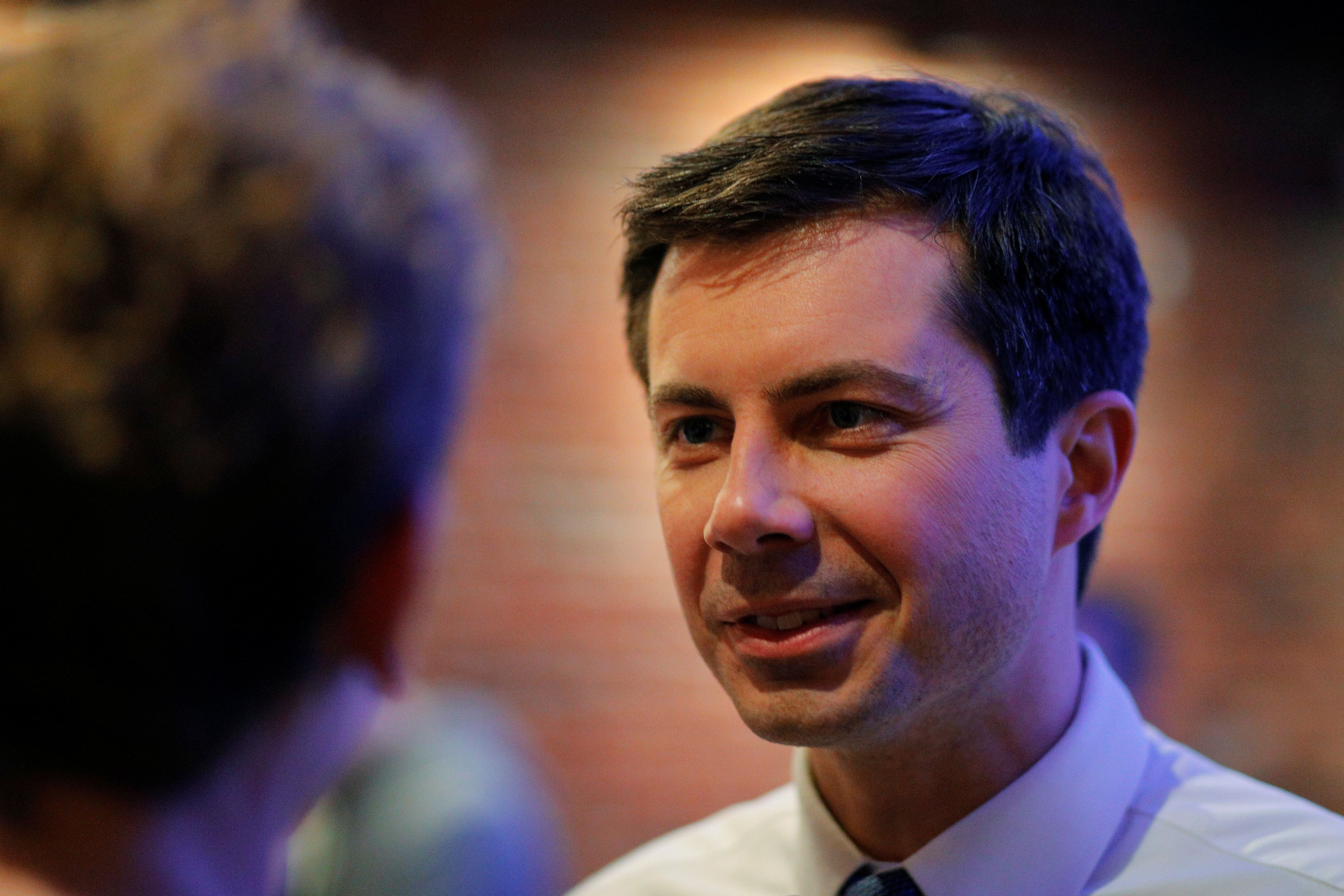March 29, 2019
In the past three years, voters in the United States, France, Italy, Mexico, Brazil, and Pakistan have swept aside familiar candidates to elevate outsiders who promise to upend their countries' politics. As more and more Democrats announce plans to take on Donald Trump in 2020, who might fit the bill as the next American outsider?
Meet Peter Paul Montgomery Buttigieg, the mayor of South Bend, Indiana. Given the difficulties many have in pronouncing his family name—Buttigieg says it's pronounced Boot-edge-edge—supporters have taken to calling him "Mayor Pete."
Can he emerge from an increasingly crowded field of Democratic candidates? Both his poll numbers and the number of people donating to his campaign are on the rise. Last week, CNN called him the "hottest candidate in the 2020 race right now." This week, veteran election analyst Nate Silver profiled what he calls the "Buttigieg bump."
Who is this guy?
Buttigieg holds some positions considered standard for Democrats: He's one of more than 400 US mayors who signed a pact pledging to abide by the rules of the Paris climate accord after Trump pulled the US out of the agreement in 2017. He supports a pathway to citizenship for undocumented immigrants brought to the US illegally as children. He proposes a health care system based on expansion of Medicare—though without eliminating private insurance companies.
He shares a few opinions with Donald Trump: He blames the North American Free Trade Agreement (NAFTA) for job losses in midwestern states and says the US should withdraw troops from Afghanistan.
But they also have important differences: A former Rhodes Scholar who speaks multiple languages, he's as cerebral as Trump is anti-intellectual and as soft-spoken and outwardly modest as Trump is brash and aggressive.
Another difference: He has served in the military. His opinion of the war in Afghanistan is based on seven-months service there as a naval intelligence officer. If elected, he'd be the first US president to have served in any foreign war that began after World War II and the first veteran in the White House since George H. W. Bush left office in January 1993.
But there are also factors that make Mayor Pete a highly unusual presidential candidate:
- He's 37 years old. If he won in 2020, he'd become the youngest person ever to serve as US president.
- His political experience is limited to two terms as mayor of a town of 102,000 people.
- He would be the first openly gay US president.
It'll be months before we learn whether Mayor Pete has staying power, but the attention he's now getting reminds us yet again that voters are drawn to candidates who appear to represent ground-breaking change.
More For You
- YouTube
China was largely absent from the core conversations at the 2026 Munich Security Conference. That, says Ian Bremmer, is telling.
Most Popular
- YouTube
At the 2026 Munich Security Conference, Brad Smith announces the launch of the Trusted Tech Alliance, a coalition of global technology leaders, including Microsoft, committing to secure cross-border tech flows, ethical governance, and stronger data protections.
When the US shift from defending the postwar rules-based order to challenging it, what kind of global system emerges? CFR President Michael Froman joins Ian Bremmer on the GZERO World Podcast to discuss the global order under Trump's second term.
TODAY at 12 pm ET: Watch our Global Stage live premiere from the Munich Security Conference
Feb 13, 2026
Tune in today at 12pm ET/6pm CET for the live premiere of our Global Stage from the 2026 Munich Security Conference, where our panel of experts takes aim at the latest global security challenges. NY Times National Security Correspondent David Sanger moderates the discussion with Benedetta Berti, Secretary General, NATO Parliamentary Assembly; Ian Bremmer, President & Co-founder, Eurasia Group & GZERO Media; Dr. Wolfgang Dierker, Global Head of Government Affairs, SAP; and Brad Smith, Vice Chair & President, Microsoft.
© 2025 GZERO Media. All Rights Reserved | A Eurasia Group media company.
